School focus: Nook Lane Junior School
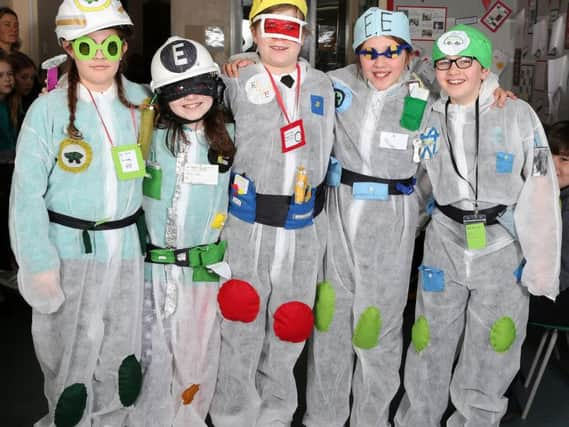

As soon as visitors, children and staff walk through the door in Stannington they are immediately made to feel welcome and at home.
Headteacher Steve Arbon-Davis describes it as a family and said the inclusive atmosphere felt is something the school prides itself on.
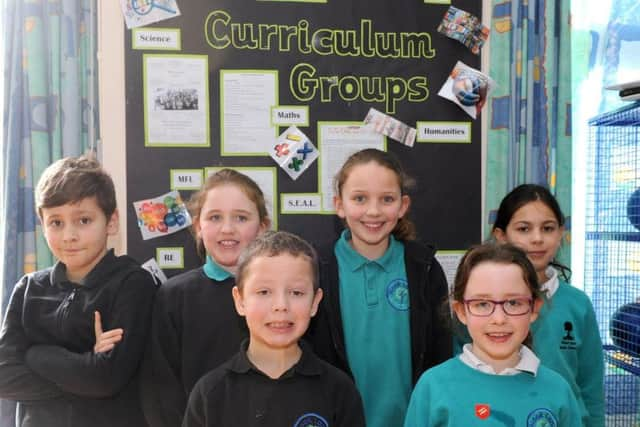

Advertisement
Hide AdAdvertisement
Hide AdThe school has a high proportion of children with special needs compared with others around the city due to its integrated resource, which supports the learning of children on the autistic spectrumand communication and language needs.
Mr Arbon-Davis said: "We try and offer as much as we can a bespoke package dependent on the needs of the children."
"Because we are an inclusive school we have children coming from different parts of the city.
"The fact that we have an integrated resource and a strong reputation of inclusivity for many years that we have a sizeable proportion of children with special needs in school."
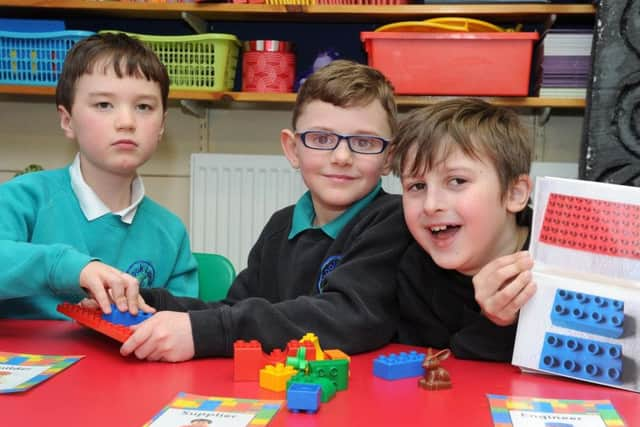

Advertisement
Hide AdAdvertisement
Hide AdThe school strives for its children to have empathy with others, understand peoples differences and be able to cope with life beyond school.
Youngsters in the integrated resource mix with those in mainstream classes and where able the children spend time in classrooms with their peers.
Children in the IR are there for a variety of reasons - some are anxious about being in mainstream classrooms, have been out of education for a while or need one-to-one support.
There have been come real success stories coming from it. One youngster who had been out of education for many months before arriving at the school needed one-to-one support after arriving but is now thriving in a mainstream classroom.
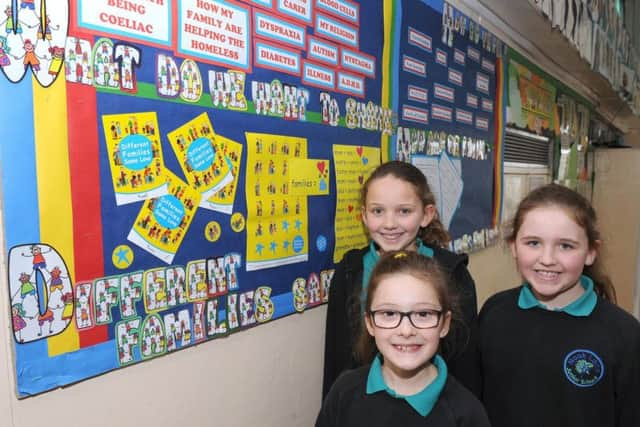

Advertisement
Hide AdAdvertisement
Hide AdCollette Taylor, IR leader and teacher, said: "Our main aim is that we are trying to enable children to build up resilience so they are able to cope with life
"IR is an approach - it's not just a room or a resource. It's how we talk with children."
Staff work hard to get youngsters to recognise that everyone is different and become more accepting of the way some children act in school.
Diane Wilkinson, the school's SENCO and inclusion manager, said: "We felt as a group that emotional health and well being as one area in the code of practice we were doing more and more to support children.
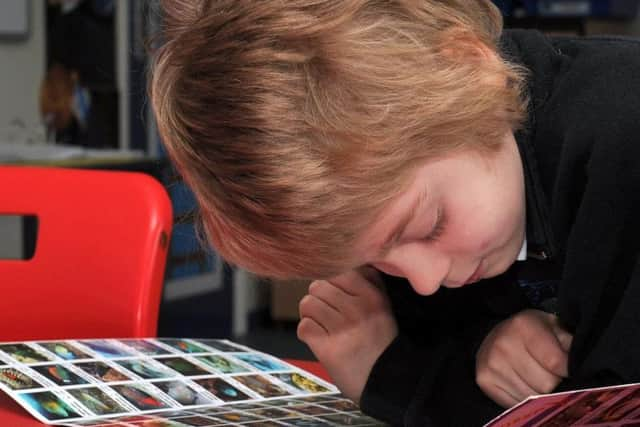

Advertisement
Hide AdAdvertisement
Hide Ad"Our big focus as a locality how we can support mental health and well bring through curriculum clubs and extra support and training.
"School shave got to be doing something for children to be able to form and understanding of differences and diversity in their own community."
For a few years the school has been allowing pupils to do 'my life as a...' speeches in assemblies during which they tell others about their diagnosis and why they behave in certain ways and need to do specific things.
Topics have included autism, living with celiac disease, ADHD and diabetes. Other youngsters have spoken about their life as a young carer and their religion.
Advertisement
Hide AdAdvertisement
Hide AdMr Arbon-Davis said: "When we first started there was some unease from some of the parents of children who were speaking being bullied but we didn't think that would happen and it hasn't.
"They are curious and inquisitive and have become more responsive over time and are much more considerate.
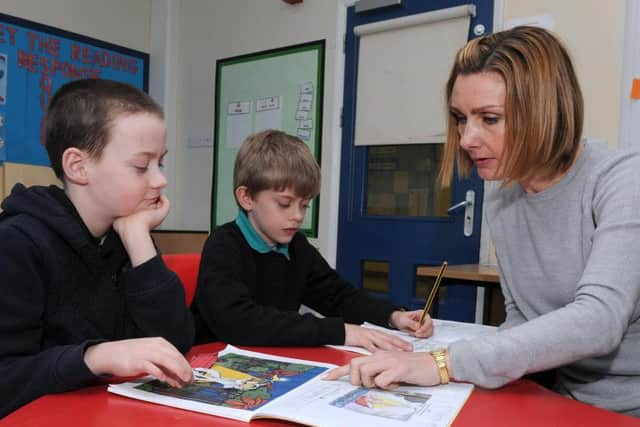

"It's about helping children, generating respect for each other and encouraging empathy among children."
Over time youngsters questioning has become much more sophisticated.
Advertisement
Hide AdAdvertisement
Hide AdVarious methods are used by staff to enable children to express their feelings and inform people of their wellbeing.
Children are asked to rate how they are feeling from one to 10 in the morning and afternoon.
Staff speak with children who regular give low scores to see if they is anything effecting them and if their is a way they can be helped.
Mrs Wilkinson said: "It's about trying to get children to recognise what they can do to improve their mental well being and getting them to see that maybe things aren't that bad.
Advertisement
Hide AdAdvertisement
Hide Ad"If they are regularly scoring low then we can speak with them and see how we can help."
Mrs Wilkinson said pupils are encouraged to use the analogy that they are a bottle of lemonade - and and tell staff if they feel 'fizzy' when their anger is building.
In addition to the school council, there are also curriculum council's so youngsters can meet with a subject leader each half term and discus their ideas.
The health and well being council want to create a 'calm corner' in the school, which will include benches and books.
Advertisement
Hide AdAdvertisement
Hide AdChildren with particular needs are given a lunchtime supervisor as a person they can speak to on breaks, which are often difficult times for some youngsters, who are aware of their issues and can support them.
"Having that team around the child means there is always someone feeding back about that child during the day," said Mrs Wilkinson.
"Lunchtime supervisors are really important. Some children find lunchtimes that most difficult.
"When we pick up on the emotional needs of children then things are put in place around intervention and how we can help them.
Advertisement
Hide AdAdvertisement
Hide Ad"As adults if we have a bereavement then people know to be careful around us, and they same should be for children so we make all staff aware of how children are feeling."
Some children are offered Lego therapy at lunchtimes, which they can opt to take part in rather than spend time in the playground.
Clubs and extra curricular activities are also run after school.
The school boasts a 'rich and exciting curriculum' and has living history days, an art fortnight, a Nooker Prize poetry competition and extra curricular trips for children to enjoy, which include visits to Thornbridge and Lockerbrook and a night in Western Park Museum.
Advertisement
Hide AdAdvertisement
Hide AdYear six pupils are taking part in an enterprise project which involves them forming companies and designing uniforms and cars. They will them present pitches to local business representatives, similar to Dragon's Den.
Mr Arbon-Davis said the relationships between the school's 'incredible' staff and pupils was something very special.
He added: "It's a happy place to work and learn. This is evidence by the fact that we have a low mobility of staff, high stability, seem happy to work at Nook Lane and like to stay.
People like the family feel at the school and parents speak very highly about the warmth of the welcome and how people are very happy and approachable.
"People that come here refer to themselves as Nook Laners. It's a mindset."